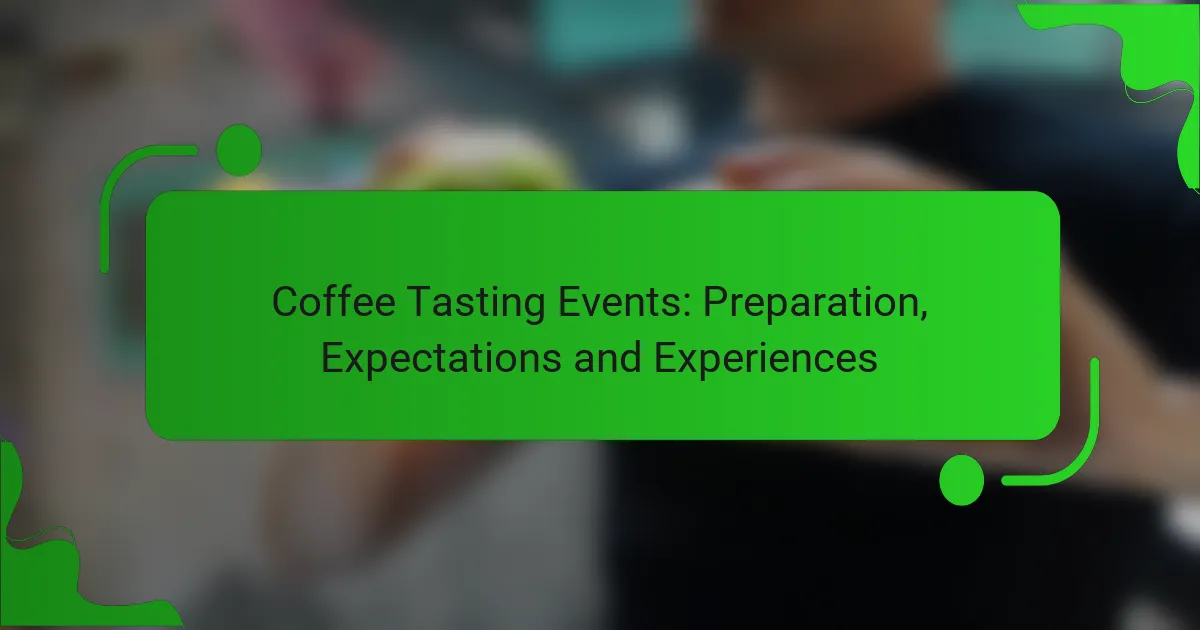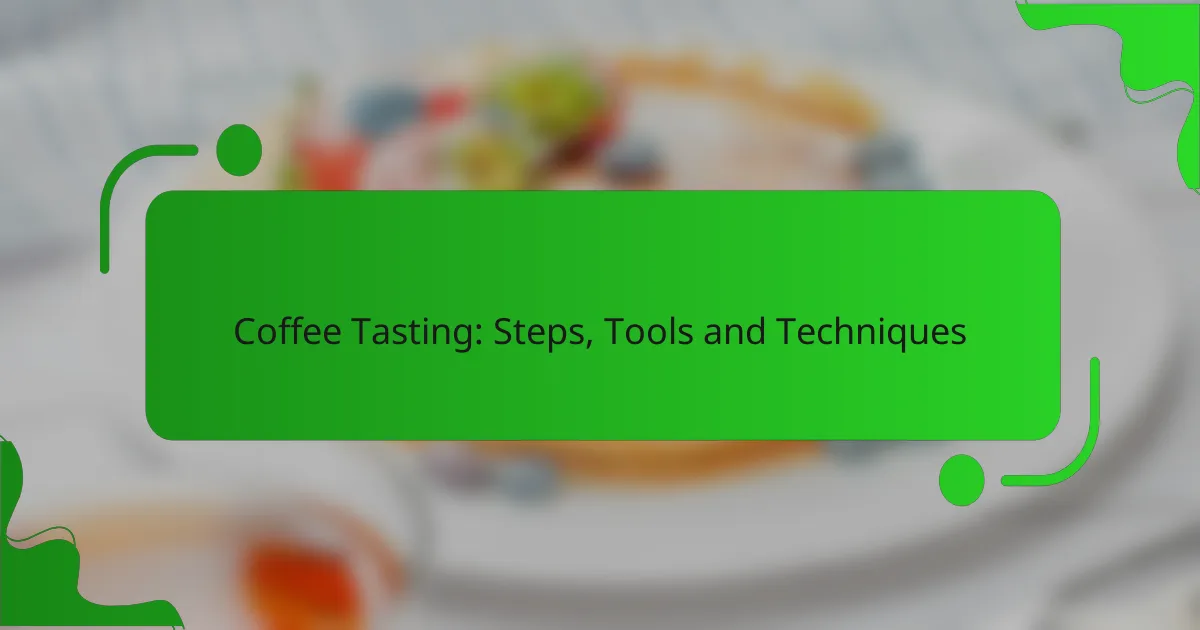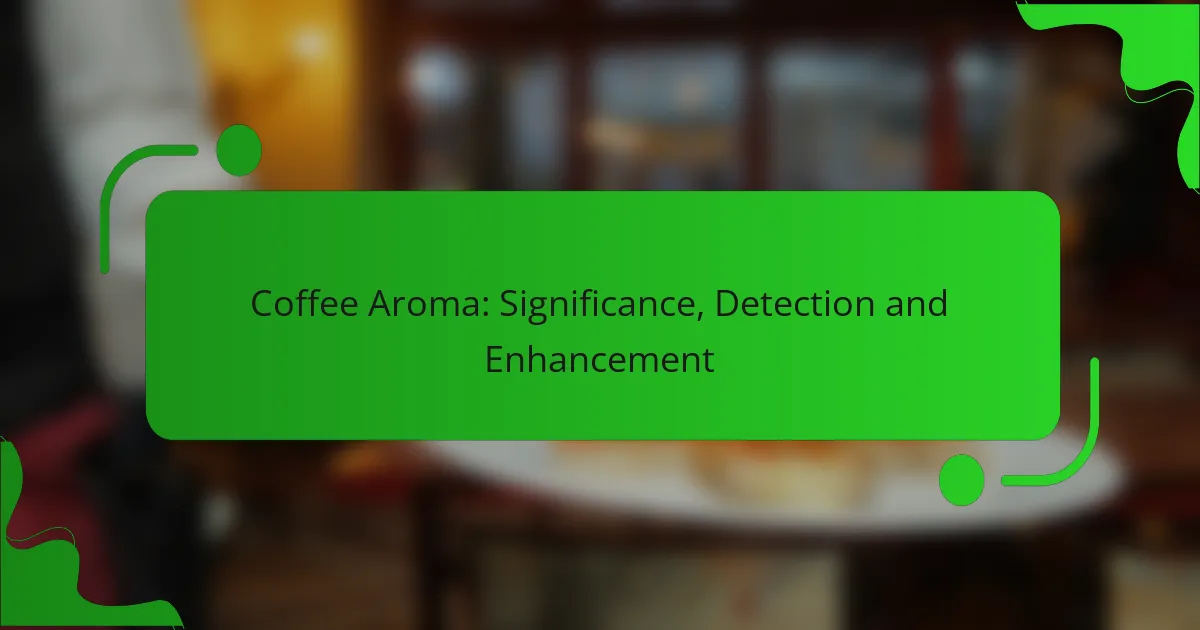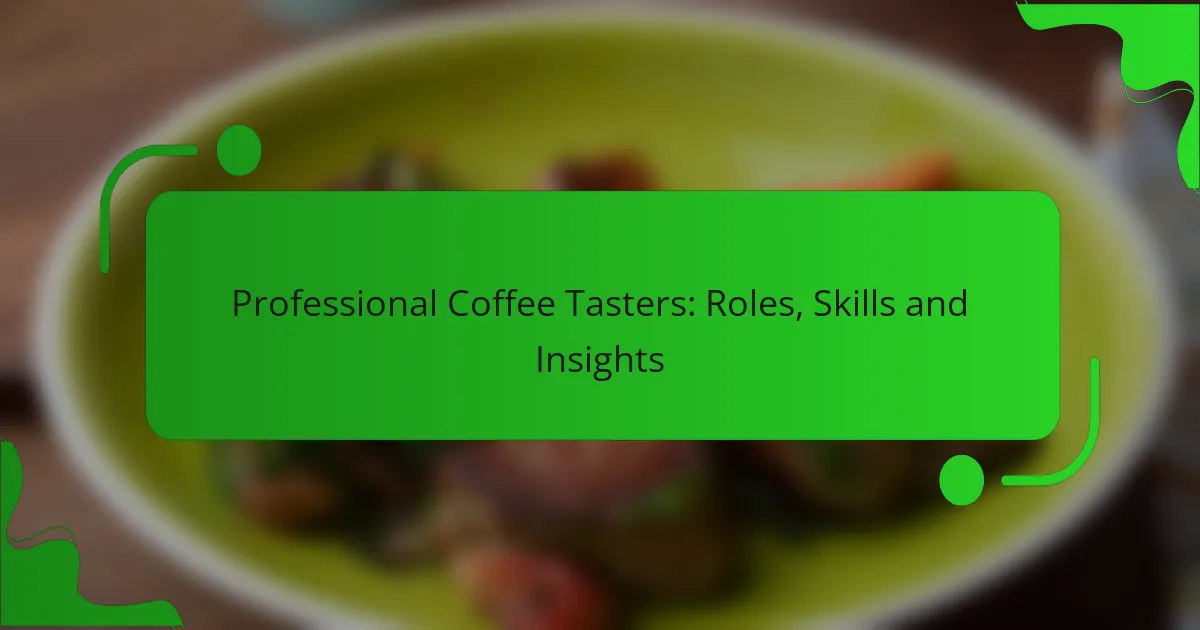Coffee tasting events offer a unique opportunity to explore a wide range of flavors and deepen your appreciation for this beloved beverage. Preparation is key, from gathering the right equipment to curating a selection of diverse coffee varieties, ensuring an engaging and enjoyable experience for all participants. Attendees can look forward to expert insights and lively discussions that enhance their understanding of coffee’s complexities.
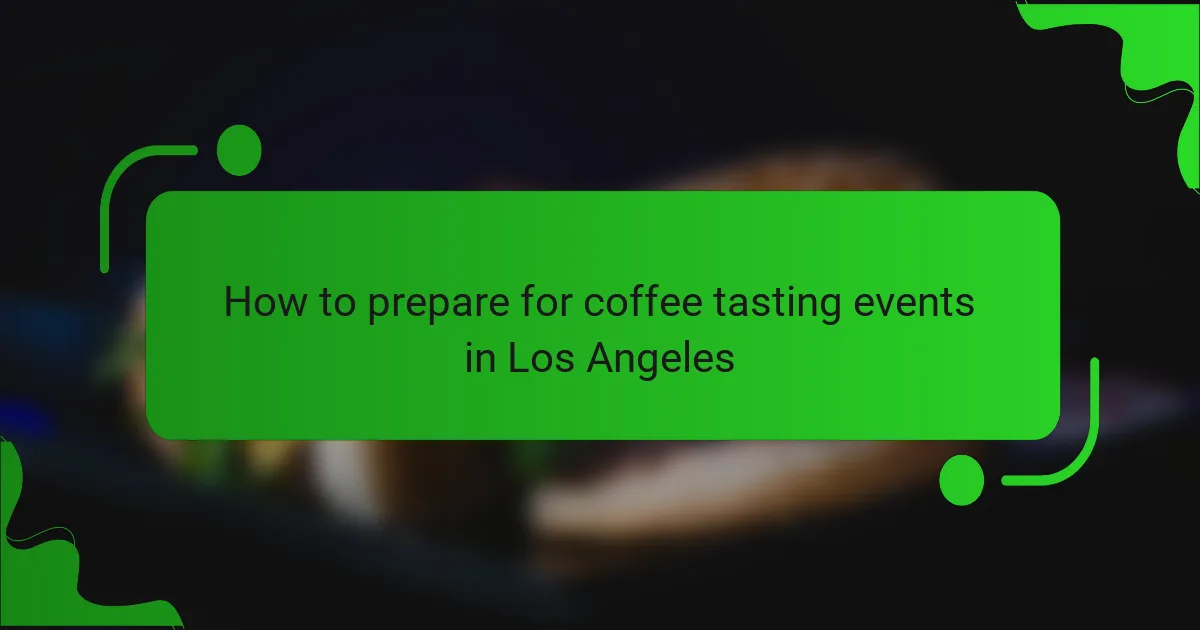
How to prepare for coffee tasting events in Los Angeles
Preparing for coffee tasting events in Los Angeles involves careful planning and attention to detail. Focus on gathering the right equipment, selecting diverse coffee varieties, and creating an inviting atmosphere for participants.
Gather necessary equipment
Essential equipment for a coffee tasting includes cupping bowls, spoons, scales, and a grinder. Ensure you have enough bowls for each coffee variety, as well as clean water for rinsing. A scale helps measure coffee and water accurately, which is crucial for consistent results.
Consider investing in a coffee brewing device, such as a French press or pour-over setup, to showcase different brewing methods. Having a notebook or tasting sheets for participants to record their impressions can enhance the experience.
Select coffee varieties
Choose a range of coffee varieties to highlight different flavor profiles and origins. Aim for a mix of light, medium, and dark roasts, as well as beans from various regions like Central America, Africa, and Asia. This diversity allows participants to explore a broad spectrum of tastes.
Consider including specialty coffees or limited editions to elevate the tasting experience. If possible, source beans from local roasters in Los Angeles to support the community and provide fresh options.
Invite knowledgeable participants
Invite participants who have a keen interest in coffee, such as baristas, roasters, or coffee enthusiasts. Their knowledge can enrich discussions and provide valuable insights during the tasting. Aim for a group size that fosters interaction, typically between six to twelve people.
Encourage participants to share their experiences and preferences, which can lead to a more engaging and educational event. Consider providing a brief overview of coffee tasting techniques to ensure everyone is on the same page.
Choose a suitable venue
Select a venue that is comfortable and conducive to tasting. A quiet space with good lighting allows participants to focus on the flavors and aromas of the coffee. Consider hosting the event in a coffee shop, a community center, or even a home with ample seating.
Ensure the venue has access to necessary amenities, such as water, electricity for grinders, and a place to dispose of used coffee grounds. A relaxed atmosphere will encourage open conversation and enjoyment of the tasting experience.
Plan the tasting schedule
Develop a tasting schedule that outlines the order of coffee samples and the time allocated for each. A typical tasting might last between two to three hours, allowing sufficient time for discussion and reflection after each coffee. Start with lighter coffees and progress to darker roasts to avoid overwhelming the palate.
Incorporate breaks for participants to cleanse their palates, such as with water or plain crackers. This will help them appreciate the distinct flavors of each coffee variety more fully. Provide a brief overview of each coffee before tasting to set expectations and enhance the experience.
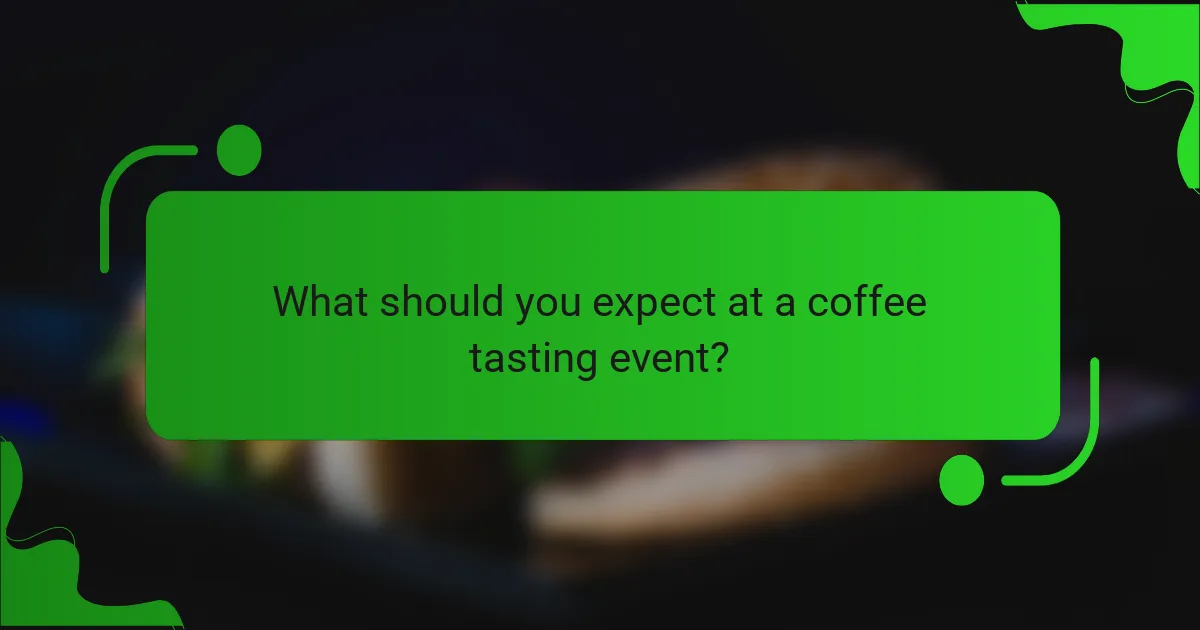
What should you expect at a coffee tasting event?
At a coffee tasting event, participants can anticipate a rich exploration of diverse coffee flavors, expert insights, and engaging discussions. These events are designed to enhance your appreciation of coffee through guided tastings and interactive experiences.
Variety of coffee flavors
One of the highlights of a coffee tasting event is the opportunity to sample a wide range of coffee flavors. Attendees can expect to taste coffees from different regions, each offering unique profiles influenced by their growing conditions and processing methods. Common flavor notes include fruity, nutty, chocolatey, and floral, allowing for a comprehensive sensory experience.
To fully appreciate the variety, participants should approach tastings with an open mind and a willingness to explore unfamiliar flavors. It can be helpful to take notes on each coffee’s aroma, taste, and aftertaste to enhance your learning and enjoyment.
Expert guidance
Expert guidance is a key component of coffee tasting events. Knowledgeable hosts, often coffee roasters or certified baristas, provide insights into the origins, brewing methods, and flavor profiles of the coffees being sampled. This expertise can deepen your understanding of what makes each coffee unique.
Participants should engage with the experts by asking questions and seeking recommendations. This interaction not only enriches the tasting experience but also helps attendees develop their palate and brewing skills.
Interactive discussions
Interactive discussions are a vital aspect of coffee tasting events, fostering a collaborative learning environment. Attendees are encouraged to share their thoughts on the coffees, discuss their preferences, and compare tasting notes with others. This exchange of ideas can lead to new insights and a broader appreciation for coffee.
To make the most of these discussions, come prepared with your own observations and be open to differing opinions. This will enhance your experience and contribute to a lively atmosphere.
Networking opportunities
Coffee tasting events often serve as excellent networking opportunities for coffee enthusiasts, industry professionals, and casual drinkers alike. These gatherings allow participants to connect with like-minded individuals, share experiences, and even explore potential collaborations in the coffee industry.
To maximize networking, consider bringing business cards or contact information to share with others. Engaging in conversations about coffee can lead to lasting connections and future opportunities in the coffee community.
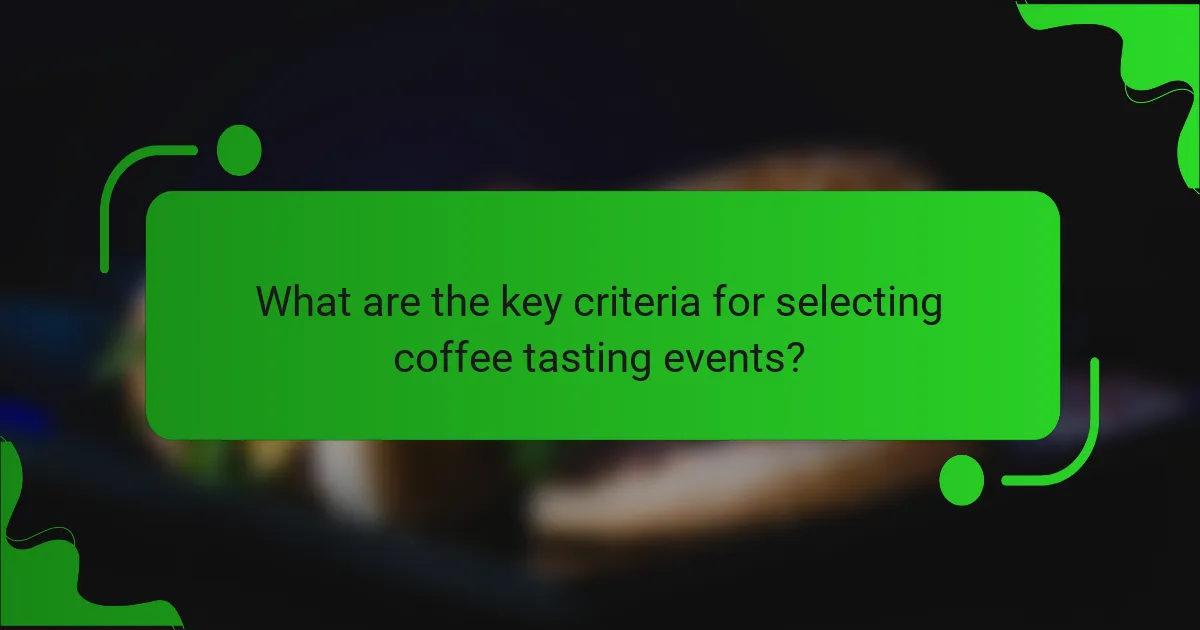
What are the key criteria for selecting coffee tasting events?
When selecting coffee tasting events, consider the reputation of the host, the quality of coffee offered, and the accessibility of the location. These factors significantly influence the overall experience and satisfaction of participants.
Reputation of the host
The reputation of the host can greatly impact the quality of the coffee tasting event. Look for hosts who are well-known in the coffee community, such as established roasters or experienced baristas. Reviews and testimonials from previous attendees can provide insight into the host’s credibility.
Additionally, consider whether the host has any certifications or affiliations with recognized coffee organizations. This can indicate a commitment to quality and professionalism.
Quality of coffee offered
The quality of coffee served at the event is crucial for an enjoyable tasting experience. Look for events that feature specialty coffees, which are often sourced from specific regions and prepared with care. High-quality coffee should have distinct flavor profiles and be freshly brewed.
It’s beneficial to check if the event includes a variety of coffee types, such as single-origin or blends, to allow for a broader tasting experience. Some events may even offer educational components, such as information on brewing methods or flavor notes.
Location accessibility
Accessibility of the event location is an important factor to consider. Ensure that the venue is easy to reach, whether by public transport or car, and check for parking availability if driving. A convenient location can enhance the overall experience by reducing travel stress.
Additionally, consider the venue’s atmosphere and amenities. A comfortable setting with adequate seating and facilities can make the tasting more enjoyable. Look for venues that are known for hosting similar events, as they often have the necessary setup for a successful coffee tasting.
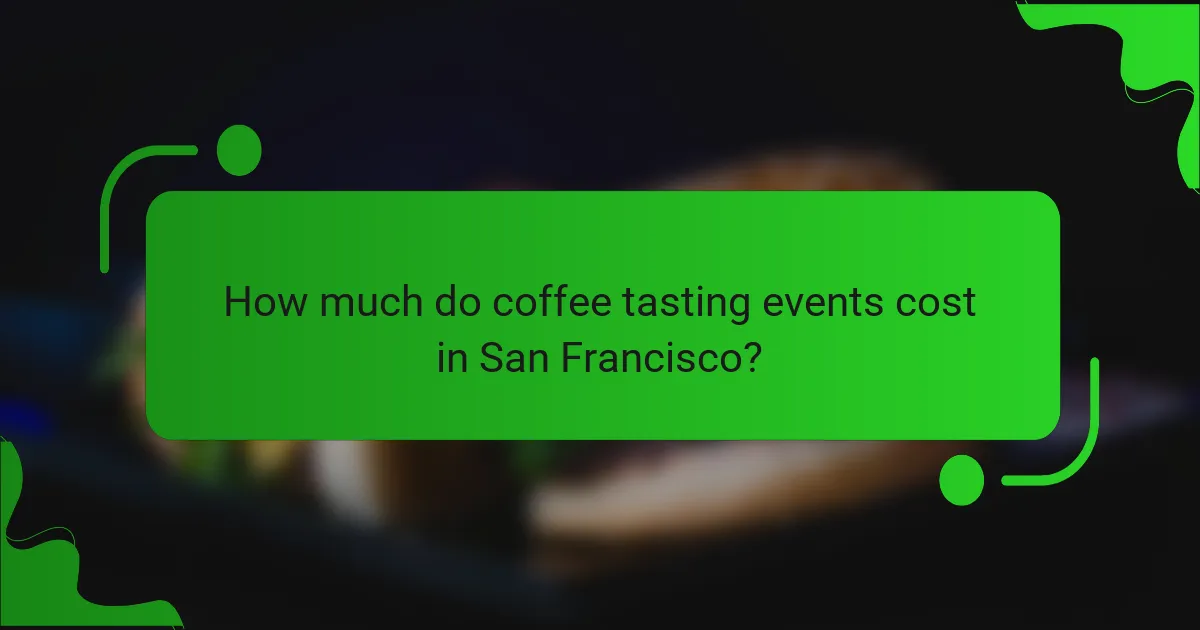
How much do coffee tasting events cost in San Francisco?
In San Francisco, coffee tasting events typically range from $20 to $100 per person, depending on the venue and the experience offered. Factors such as the number of tastings, the expertise of the host, and included amenities can influence the overall cost.
Average ticket prices
The average ticket price for coffee tasting events in San Francisco generally falls between $30 and $60. More exclusive events, featuring specialty coffees or renowned baristas, can cost upwards of $80. It’s advisable to check multiple venues for the best options.
Included amenities
Most coffee tasting events include a guided tasting of several coffee varieties, often accompanied by snacks or pastries. Some events may also offer educational components, such as brewing techniques or coffee origin stories. Additional amenities might include take-home samples or discounts on coffee purchases.
Group discounts
Many venues offer group discounts for coffee tasting events, typically starting at parties of six or more. Discounts can range from 10% to 20% off the total price, making it a cost-effective option for friends or corporate outings. It’s best to inquire in advance about group rates when booking your event.
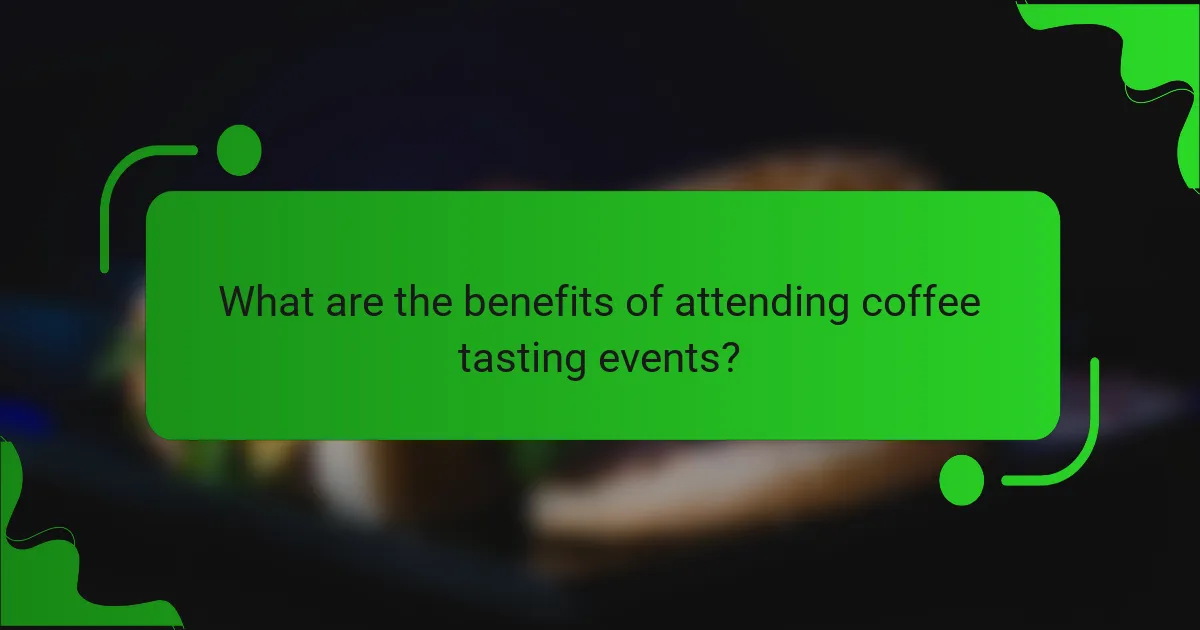
What are the benefits of attending coffee tasting events?
Attending coffee tasting events offers numerous benefits, including the opportunity to deepen your understanding of coffee flavors and brewing techniques. Participants can enhance their palate, discover new coffee varieties, and connect with fellow coffee enthusiasts.
Enhancing your coffee knowledge
Coffee tasting events provide a platform to learn about different coffee beans, their origins, and the impact of various brewing methods. Experts often lead tastings, sharing insights on flavor profiles, aroma, and the nuances of each coffee type. This knowledge can significantly elevate your appreciation for coffee.
Networking opportunities
These events attract a diverse group of coffee lovers, from casual drinkers to industry professionals. Engaging with others allows you to share experiences, exchange tips, and even make connections that could lead to future collaborations or business opportunities. Networking can enhance your understanding of the coffee community.
Discovering new flavors
During coffee tastings, you can sample a wide range of coffees, often including rare or specialty varieties not commonly found in stores. This exposure helps you identify your preferences and may introduce you to flavors you might not have tried otherwise. It’s a chance to expand your palate and refine your taste.
Practical tips for attending
To make the most of your coffee tasting experience, consider arriving with an open mind and a willingness to try new things. Take notes on the coffees you sample, noting flavors and aromas that stand out. Don’t hesitate to ask questions; the more you engage, the more you will learn.
Additionally, it’s wise to pace yourself. Coffee tastings can involve multiple samples, and consuming too much caffeine in a short period can lead to jitters. Aim to enjoy the experience without overwhelming your senses.
